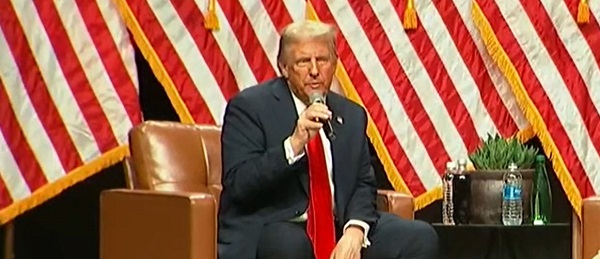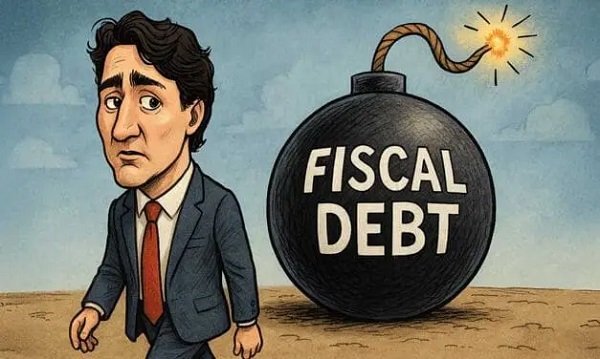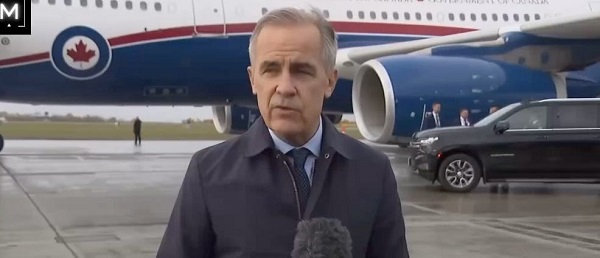Daily Caller
Biden’s Signature Climate ‘Boondoggle’ Might Be On Chopping Block After Trump Win

 From the Daily Caller News Foundation
From the Daily Caller News Foundation
In the wake of the election of President Donald Trump to serve a second term in office, along with presumptive Republican majorities in both houses of Congress, many are now asking about what the future will hold for the oddly named Inflation Reduction Act.
Trump made it repeatedly clear on the campaign trail that he is not a fan of that law, which was passed on straight party-line votes in both houses of Congress, or of the hundreds of billions of dollars in green energy subsidies contained in it.
In a statement sent out in a post-election memo, Sierra Club President Ben Jealous took on a pessimistic tone, saying: “Donald Trump was a disaster for climate progress during his first term, and everything he’s said and done since suggests he’s eager to do even more damage this time.” Given the major role played by the Sierra Club and other climate-alarm groups in writing the IRA, that is exactly the kind of comments we might expect.
But a full repeal of the IRA seems unlikely to succeed, even with GOP control of the House and Senate. Republican majorities will be slim and the GOP has never shown an ability to hold all its members together when voting on controversial issues. Thus, a more scalpel-like approach seems more likely to succeed.
I asked Karr Ingham, a respected petroleum economist who serves as the president of the Texas Alliance of Energy Producers, if he thinks Trump and his administration would seek to repeal the Inflation Reduction act in full. Ingham said: “I certainly hope so.” Specifically, Ingham pointed to a need to repeal “the methane tax [waste emissions charge] in the IRA, and frankly, much of the spending boondoggle that is the IRA should simply be eliminated.”
Tom Pyle, president of D.C.-based think tank the Institute for Energy Research, said he believes President Trump “absolutely should” pursue a full repeal of that law. “The vast array of subsidies embedded in the Inflation Reduction Act (IRA) is already destabilizing our electricity grid, while the spending further fuels inflation and contributes to soaring government deficits.”
Pyle further notes that Trump has promised an array of tax cuts for working Americans and families and will need to find budget offsets for those. Pyle believes the IRA offers such an opportunity. “Getting rid of subsidies for big corporations in exchange for tax relief on working families is both good policy and good politics,” he adds.
But American Petroleum Institute President Mike Sommers said his group favors retaining at least some major pieces of the IRA, specifically pointing to subsidies for carbon capture and storage (CCS) and hydrogen development. “We’ll advocate for provisions that we support, and we’ll seek repeal of provisions that we think don’t line up with continued production in the states of oil and gas,” Sommers told Politico. This is no surprise given that some of API’s biggest members have already made big bets on both CCS and hydrogen projects.
It is also important to remember that, since the IRA was signed into law in September 2022, renewable energy companies have invested hundreds of billions of dollars into wind, solar and electric vehicles projects, and a big portion of those investments are happening in key Republican states and counties.
Jason Grumet, CEO at the American Clean Power Association, said in a statement that, “Private sector clean energy investment is bringing jobs and economic opportunity to small towns and rural communities across the nation, while hundreds of new factories have come online in states that have seen far too many good jobs move overseas.” Grumet also pointed to the fact that quite a lot of investment into both wind and solar took place during Trump’s first term in office even without the added incentives from the IRA subsidy and tax incentive regimes, adding that ACPA and its members are “committed to working with the Trump-Vance administration and the new Congress to continue this great American success story.”
There is little question the Trump administration will take a hard look at many of the IRA provisions, but political realities combined with the billions already invested based on the continuation of these programs makes a full repeal seem highly unlikely.
David Blackmon is an energy writer and consultant based in Texas. He spent 40 years in the oil and gas business, where he specialized in public policy and communications.
Business
Canada is still paying the price for Trudeau’s fiscal delusions

This article supplied by Troy Media.
 By Lee Harding
By Lee Harding
Trudeau’s reckless spending has left Canadians with record debt, poorer services and no path back to a balanced budget
Justin Trudeau may be gone, but the economic consequences of his fiscal approach—chronic deficits, rising debt costs and stagnating growth—are still weighing heavily on Canada
Before becoming prime minister, Justin Trudeau famously said, “The budget will balance itself.” He argued that if expenditures stayed the same, economic growth would drive higher tax revenues and eventually outpace spending. Voila–balance!
But while the theory may have been sound, Trudeau had no real intention of pursuing a balanced budget. In 2015, he campaigned on intentionally overspending and borrowing heavily to build infrastructure, arguing that low interest rates made
it the right time to run deficits.
This argument, weak in its concept, proved even more flawed in practice. Postpandemic deficits have been horrendous, far exceeding the modest overspending initially promised. The budgetary deficit was $327.7 billion in 2020–21, $90.3 billion the year following, and between $35.3 billion and $61.9 billion in the years since.
Those formerly historically low interest rates are also gone now, partly because the federal government has spent so much. The original excuse for deficits has vanished, but the red ink and Canada’s infrastructure deficit remain.
For two decades, interest payments on federal debt steadily declined, falling from 24.6 per cent of government revenues in 1999–2000 to just 5.9 per cent in 2021–22—thanks largely to falling interest rates and prior fiscal restraint. But that trend has reversed. By 2023–24, payments surged past 10 per cent for the first time in over a decade, as rising interest rates collided with record federal debt built up under Trudeau.
Rising debt costs are only part of the story. Federal revenues aren’t what they could have been because Canada’s economy has stagnated. High immigration, which drives productivity down, is the only thing masking our lacklustre GDP growth. Altogether, Canada was 35th among 38 countries in the Organization for Economic Co-operation and Development (OECD) for per capita GDP growth from 2014 to 2022 at just 0.2 per cent. By comparison, Ireland led at 45.2 per cent, followed by the U.S. at 20.8 per cent.
Why should a country like Canada, so blessed with natural resources and knowhow, do so poorly? Capital investment has fled because our government has made onerous regulations, especially hindering our energy industry. In theory, there’s now a remedy. Thanks to new legislation, the Carney government can extend its magic sceptre to those who align with its agenda to fast-track major projects and bypass the labyrinth it created. But unless you’re onside, the red tape still strangles you.
But as the private sector withers under red tape, Ottawa’s civil service keeps ballooning. Some trimming has begun, rattling public sector unions. Still, Canada will be left with at least five times as many federal tax employees per capita as the U.S.
Canada also needs to ease its hell-bent pursuit of net-zero carbon emissions. Hydrocarbons still power the Canadian economy—from vehicles to home heating—and aren’t practically replaceable. Canada has already proven that chasing net zero leads to near-zero per capita growth. Despite high immigration, the OECD projects Canada to have the lowest overall GDP growth between 2021 and 2060.
The Nov. 4 release of the federal budget is better late than never. So would be a plan to grow the economy, slash red tape and eliminate the deficit. But we’re unlikely to get one.
Trudeau may be gone, but his legacy of fiscal recklessness is alive and well.
Lee Harding is a research fellow with the Frontier Centre for Public Policy.
Troy Media empowers Canadian community news outlets by providing independent, insightful analysis and commentary. Our mission is to support local media in helping Canadians stay informed and engaged by delivering reliable content that strengthens community connections and deepens understanding across the country
Business
Trump Raises US Tariffs on Canadian Products by 10% after Doug Ford’s $75,000,000 Ad Campaign


From the Daily Caller News Foundation
President Donald Trump announced Saturday he is increasing U.S. tariffs on Canada by 10%, after the leader of the country’s largest province said he would be pulling an anti-tariff ad — but not until after it could air during Game 2 of the World Series.
Ontario Premier Doug Ford stated Friday his government plans to pull the ad in question after Trump said he was ending trade negotiations with Canada the night before. The spot featured the voice of President Ronald Reagan appearing to sharply criticize “high tariffs” and “protectionist” policy, and used an edited form of remarks the then-president made in an 1987 radio address.
In announcing his intention to pull the ad — which was intentionally broadcast on major networks in American markets — Ford noted he “directed” his team to keep it live until after the second game of baseball’s Fall Classic on Saturday night, a move Trump initially called a “dirty play.” The ad also ran Friday night during Game 1.
Dear Readers:
As a nonprofit, we are dependent on the generosity of our readers.
Please consider making a small donation of any amount here.
Thank you!
Trump then declared Saturday he was going forward with a 10% tariff increase on Canada.
“Their Advertisement was to be taken down, IMMEDIATELY, but they let it run last night during the World Series, knowing that it was a FRAUD,” Trump wrote in a Saturday afternoon Truth Social post. “Because of their serious misrepresentation of the facts, and hostile act, I am increasing the Tariff on Canada by 10% over and above what they are paying now.”
“Canada was caught, red handed, putting up a fraudulent advertisement on Ronald Reagan’s Speech on Tariffs. The Reagan Foundation said that they, ‘created an ad campaign using selective audio and video of President Ronald Reagan. The ad misrepresents the Presidential Radio Address,’ and ‘did not seek nor receive permission to use and edit the remarks. The Ronald Reagan Presidential Foundation and Institute is reviewing its legal options in this matter,’” Trump added in his post, citing an organization dedicated to continuing the late 40th president’s legacy.
“The sole purpose of this FRAUD was Canada’s hope that the United States Supreme Court will come to their ‘rescue’ on Tariffs that they have used for years to hurt the United States,” Trump’s post continues. “Now the United States is able to defend itself against high and overbearing Canadian Tariffs (and those from the rest of the World as well!). Ronald Reagan LOVED Tariffs for purposes of National Security and the Economy, but Canada said he didn’t!”
The ad campaign carried a price tag of $75 million CAD (Canadian), roughly equivalent to $54 million, according to The Associated Press (AP). The taxpayer-funded ad was paid for by Ontario’s provincial government, which the premier leads.
“We’ve achieved our goal, having reached U.S. audiences at the highest levels,” Ford said in a Friday statement reported by AP announcing his plan to pull the ad after Game 2. “Our intention was always to initiate a conversation about the kind of economy that Americans want to build and the impact of tariffs on workers and businesses.”
“I’ve directed my team to keep putting our message in front of Americans over the weekend so that we can air our commercial during the first two World Series games,” the Ontario premier added.
Trump announced Thursday night on Truth Social he was ending trade negotiations with Canada due to the ad.
“Based on their egregious behavior, ALL TRADE NEGOTIATIONS WITH CANADA ARE HEREBY TERMINATED,” the president wrote in the post.
“TARIFFS ARE VERY IMPORTANT TO THE NATIONAL SECURITY, AND ECONOMY, OF THE U.S.A.,” he added [sic].
“High tariffs inevitably lead to retaliation by foreign countries and the triggering of fierce trade wars. Then the worst happens. Markets shrink and collapse,” Reagan’s edited radio message can be heard in the ad, which included a backdrop of mellow music and a video montage of people and landscapes. “Businesses and industries shut down and millions of people lose their jobs. Throughout the world, there’s a growing realization that the way to prosperity for all nations is rejecting protectionist legislation and promoting fair and free competition.”
“America’s job and growth are at stake,” Reagan can be seen delivering the ad’s final line on a TV screen before the words “Ontario” and “Canada” flash on the screen.
The 2025 World Series features the Toronto Blue Jays and Los Angeles Dodgers. The Blue Jays are the only Major League Baseball (MLB) team based in Canada despite having only one Canadian-born player on its 26-man World Series roster.
Ford, a member of the center-right Progressive Conservative Party has led Ontario, Canada’s most populous province, since 2018. His late younger brother, Rob Ford, served as Toronto’s mayor from 2010 to 2014. The younger Ford made national headlines in 2013 after admitting to having smoked crack cocaine “in a drunken stupor.”
Premier Ford’s office did not respond to the Daily Caller News Foundation’s (DCNF) request for comment. The White House did not immediately respond to the DCNF’s request for comment.
-

 MAiD2 days ago
MAiD2 days agoDisabled Canadians increasingly under pressure to opt for euthanasia during routine doctor visits
-

 Alberta2 days ago
Alberta2 days agoPetition threatens independent school funding in Alberta
-

 Business2 days ago
Business2 days agoCanada Revenue Agency found a way to hit “Worse Than Rock Bottom”
-

 Digital ID2 days ago
Digital ID2 days agoToronto airport requests approval of ‘digital IDs’ for domestic airport travel
-

 Media2 days ago
Media2 days agoCarney speech highlights how easily newsrooms are played by politicians
-

 Business2 days ago
Business2 days agoTrans Mountain executive says it’s time to fix the system, expand access, and think like a nation builder
-

 Opinion2 days ago
Opinion2 days agoCarry-On Carney And The Trials Of Brian Peckford
-

 Business2 days ago
Business2 days agoCanada is still paying the price for Trudeau’s fiscal delusions




